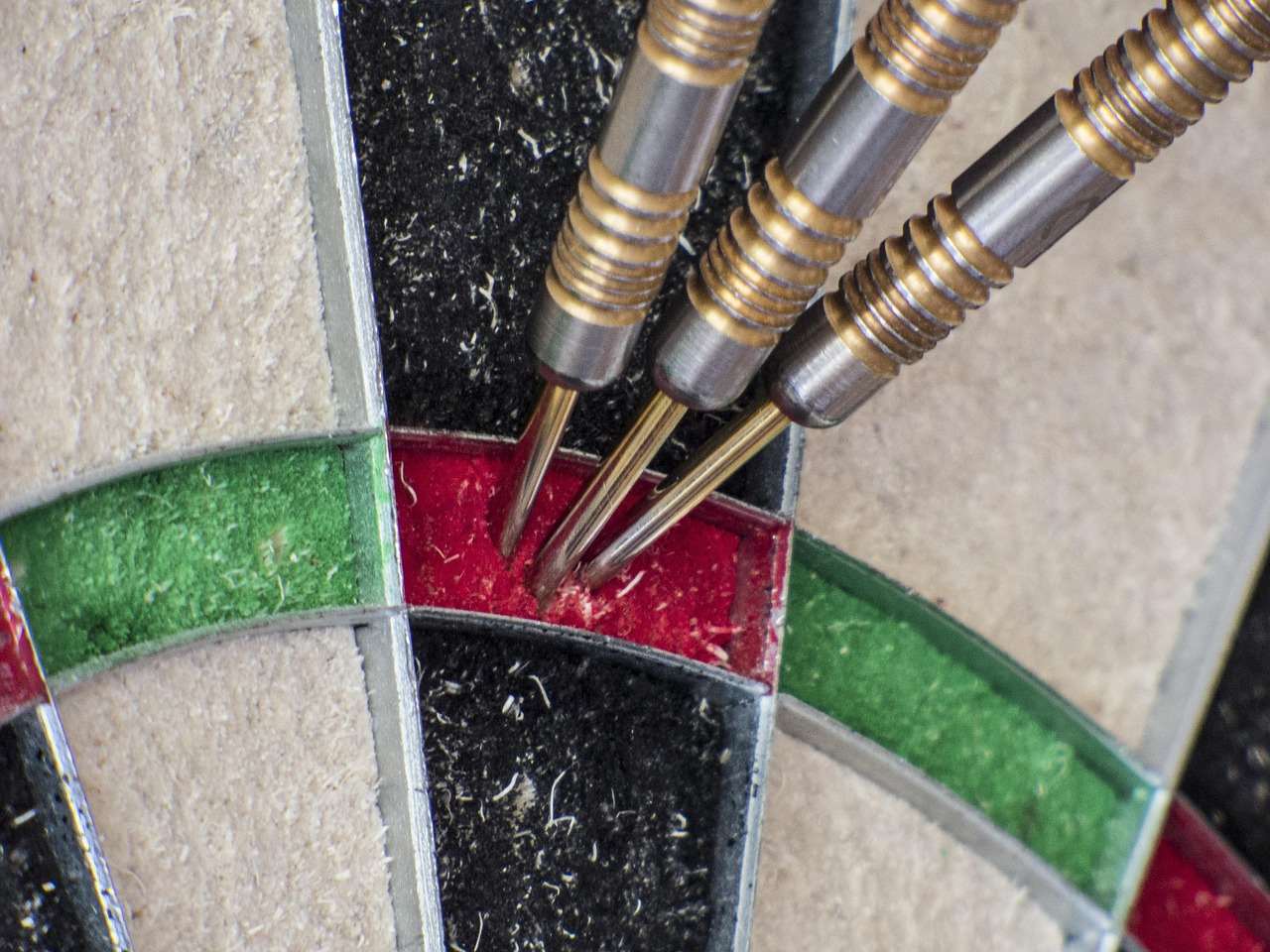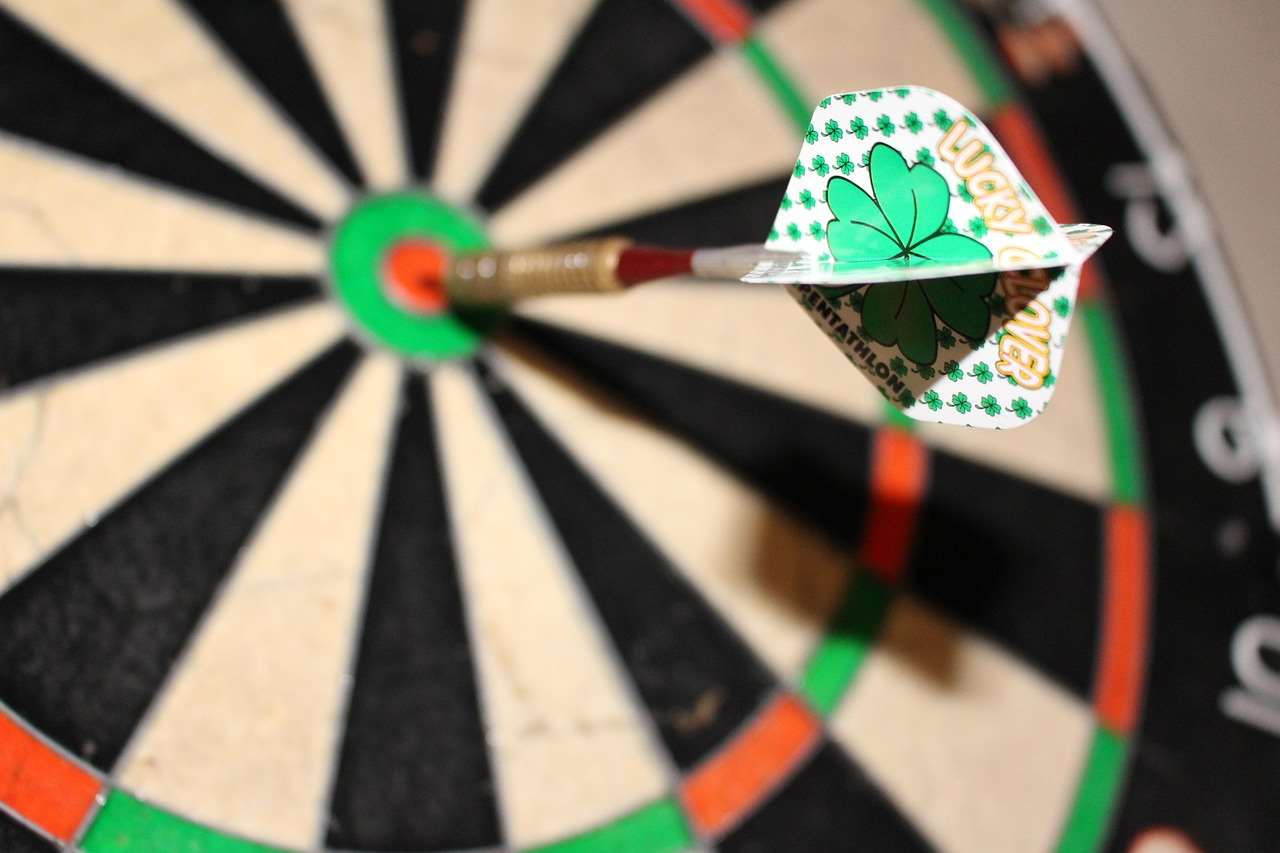The role of a referee in enforcing adapted rules is paramount in ensuring fair play and maintaining the spirit of the game when modifications are made for different skill levels or circumstances. This article will delve into the responsibilities of a referee in adapted sports and games, covering everything from understanding the rationale behind rule changes to effectively managing gameplay and addressing disputes.
⚠️ Still Using Pen & Paper (or a Chalkboard)?! ⚠️
Step into the future! The Dart Counter App handles all the scoring, suggests checkouts, and tracks your stats automatically. It's easier than you think!
Try the Smart Dart Counter App FREE!Ready for an upgrade? Click above!
Understanding the Need for Adapted Rules and the Referee’s Crucial Role
Many sports and games, including darts, often require modifications to their standard rules to accommodate various factors. These can include the age or skill level of participants, available space, or specific needs of players with disabilities. Referees play a vital part in upholding these adaptations. Without a clear understanding of why these modifications are in place, and without someone to enforce them, the fairness and enjoyment of the game can be compromised. For instance, when adapting darts rules for children, the throw line might be closer, and the scoring system simplified. The referee needs to understand and enforce these changes.

The Core Reasons Behind Rule Adaptations
- Accessibility: Ensuring that individuals of all abilities can participate.
- Skill Level: Tailoring the game to suit beginners, intermediate, or advanced players.
- Safety: Implementing modifications to minimize the risk of injury.
- Inclusion: Creating a welcoming and equitable environment for all participants.
- Engagement: Maintaining interest and enjoyment, especially for new players.
When a referee is aware of these underlying motivations, they can better interpret and apply the adapted rules in a meaningful and consistent way.
The Referee’s Responsibilities in Detail
The role of a referee in enforcing adapted rules extends far beyond simply knowing the rules themselves. It encompasses a range of responsibilities, each crucial to ensuring fair play and a positive experience for all involved.
Pre-Game Preparation
- Rule Familiarization: Thoroughly understanding the specific adapted rules being used for the game or event. This is crucial, and is key to being a good referee.
- Equipment Check: Ensuring that all equipment meets the requirements of the adapted rules.
- Communication: Clearly communicating the rules to the participants before the game begins, answering any questions they may have.
- Briefing Assistants: If applicable, ensuring any assistant referees or scorekeepers are also familiar with the adapted rules.
During Gameplay
- Rule Enforcement: Consistently and impartially enforcing the adapted rules throughout the game.
- Decision Making: Making fair and consistent decisions based on the rules and the specific circumstances of the game.
- Conflict Resolution: Effectively managing disputes and addressing any violations of the rules in a calm and professional manner.
- Maintaining Flow: Ensuring the game progresses smoothly and without unnecessary delays, while still upholding the rules.
Post-Game Activities
- Score Verification: Verifying the final score and ensuring its accuracy.
- Reporting: Documenting any significant incidents or rule violations that occurred during the game.
- Feedback: Providing constructive feedback to players or organizers, if requested.
Specific Challenges in Enforcing Adapted Rules
Referees often face unique challenges when enforcing adapted rules. These challenges can stem from a variety of factors, including player misunderstanding, inconsistent interpretation of the rules, and resistance to change. Understanding these challenges is vital for effective refereeing.
Player Misunderstanding and Education
One common challenge is that players may not fully understand the adapted rules, especially if they are accustomed to playing by the standard rules. In these cases, the referee must act as an educator, patiently explaining the rules and answering any questions. For example, in fun dart game variations with modified rules, the scoring or even the target itself might be different. The referee must ensure players understand these modifications.
Inconsistent Interpretation
Even when players understand the adapted rules, there may be disagreement about how to interpret them in specific situations. It’s important that the referee maintains a consistent and impartial approach to rule interpretation, and clearly communicates the rationale behind their decisions. This is why having a firm grasp on the **underlying principles of fairness and accessibility** is so valuable.

Resistance to Change
Some players may resist the adapted rules, particularly if they perceive them as unfair or unnecessary. In these cases, the referee must be firm but respectful, emphasizing the importance of following the rules and explaining the reasons why the adaptations are in place.
Strategies for Effective Rule Enforcement
To overcome these challenges, referees can employ a variety of strategies to effectively enforce adapted rules. These strategies focus on clear communication, proactive management, and consistent application of the rules.
Clear and Concise Communication
Effective communication is paramount. Referees should use clear, concise language when explaining the rules, making sure to avoid jargon or technical terms that players may not understand. They should also be prepared to answer questions and provide clarification as needed. Using visual aids, such as diagrams or charts, can also be helpful.
Proactive Management
Referees can proactively manage potential conflicts by anticipating situations that may lead to disputes and addressing them before they escalate. This might involve reminding players of specific rules, clarifying any ambiguities, or providing guidance on how to avoid rule violations. In darts, this could be ensuring the correct throwing distance is observed when adapting darts rules for small spaces.
Consistent Application
Consistency is key to maintaining fairness and building trust. Referees should apply the rules consistently to all players, regardless of their skill level, age, or other characteristics. This demonstrates impartiality and helps to prevent accusations of bias. Remember **fairness and consistency are core values**.
The Importance of Empathy and Understanding
While referees must enforce the rules fairly and consistently, it is also important to approach the role with empathy and understanding. Recognizing the challenges that players may face, particularly those with disabilities or those who are new to the game, can help referees to build rapport and create a more positive experience for everyone involved.

Recognizing Individual Needs
Referees should be aware of any specific needs or accommodations that players may require. This might involve allowing extra time for players to prepare their throws, providing verbal cues or instructions, or modifying the rules in specific ways to address individual challenges. For example, in wheelchair sports, the referee must understand and accommodate the specific rules related to wheelchair movement and positioning.
Building Rapport
Building rapport with players can help to create a more positive and collaborative environment. Referees can do this by being friendly, approachable, and respectful. They should also be willing to listen to players’ concerns and provide constructive feedback. A little bit of **positive reinforcement and encouragement** can go a long way.
The Role of a Referee in Enforcing Adapted Rules and Promoting Inclusivity
Ultimately, the role of a referee in enforcing adapted rules is not just about enforcing regulations, but about promoting inclusivity and creating opportunities for all individuals to participate in sports and games. By understanding the rationale behind rule adaptations, effectively managing gameplay, and demonstrating empathy and understanding, referees can play a vital role in ensuring that everyone has a positive and rewarding experience. They are key to making sport inclusive and accessible.

Benefits of Inclusive Sports and Games
- Increased Participation: More people can enjoy the benefits of physical activity and social interaction.
- Improved Health and Well-being: Regular physical activity can improve physical and mental health.
- Enhanced Social Skills: Participating in sports and games can help to develop social skills, such as communication, teamwork, and cooperation.
- Greater Understanding and Acceptance: Inclusive sports and games can promote understanding and acceptance of individuals with disabilities and other diverse backgrounds.
Training and Development for Referees of Adapted Sports
Given the unique challenges and responsibilities of referees in adapted sports, specialized training and development programs are essential. These programs should cover a range of topics, including the principles of adaptation, the specific rules of various adapted sports, and strategies for effective communication and conflict resolution. These trainings also help build confidence in the referees.
Key Components of Training Programs
- Rule Familiarization: In-depth instruction on the specific rules of adapted sports and games.
- Practical Application: Opportunities to practice applying the rules in simulated game situations.
- Communication Skills: Training in effective communication techniques, including active listening and clear explanation.
- Conflict Resolution: Strategies for managing disputes and addressing rule violations in a calm and professional manner.
- Sensitivity Training: Education on the needs and challenges of individuals with disabilities and other diverse backgrounds.
Technology and Its Impact on Officiating Adapted Sports
Technology is increasingly playing a role in officiating sports at all levels, and adapted sports are no exception. From video replay systems to wearable sensors, technology can provide referees with valuable tools to help them make accurate decisions and ensure fair play. However, it’s important to ensure technology doesn’t overshadow the human element and the spirit of the adapted rules.
Examples of Technological Applications
- Video Replay: Allows referees to review controversial plays and make more informed decisions.
- Wearable Sensors: Can track player movement and performance data, providing insights into potential rule violations or safety concerns.
- Communication Systems: Facilitate communication between referees, assistant referees, and other officials.
- Adaptive Equipment Monitoring: Technology can monitor the functionality and safety of adaptive equipment used by athletes with disabilities.

Conclusion: Upholding Fairness in Adapted Gameplay
The role of a referee in enforcing adapted rules is multifaceted and critically important for creating inclusive and enjoyable sporting experiences. By prioritizing clear communication, embracing empathy, and consistently applying the modified regulations, referees ensure fair play and promote accessibility for all participants. Remember, understanding the ‘why’ behind adaptations is just as vital as knowing ‘how’ to enforce them. Whether it is simplified 501 game rules for novice players or a completely new adaptation, referees are the cornerstone of these game rules.
Take the next step in becoming a better referee: research local training programs focused on adapted sports, and consider volunteering your time to officiate inclusive games in your community. Your commitment can make a real difference in the lives of athletes of all abilities!
Hi, I’m Dieter, and I created Dartcounter (Dartcounterapp.com). My motivation wasn’t being a darts expert – quite the opposite! When I first started playing, I loved the game but found keeping accurate scores and tracking stats difficult and distracting.
I figured I couldn’t be the only one struggling with this. So, I decided to build a solution: an easy-to-use application that everyone, no matter their experience level, could use to manage scoring effortlessly.
My goal for Dartcounter was simple: let the app handle the numbers – the scoring, the averages, the stats, even checkout suggestions – so players could focus purely on their throw and enjoying the game. It began as a way to solve my own beginner’s problem, and I’m thrilled it has grown into a helpful tool for the wider darts community.